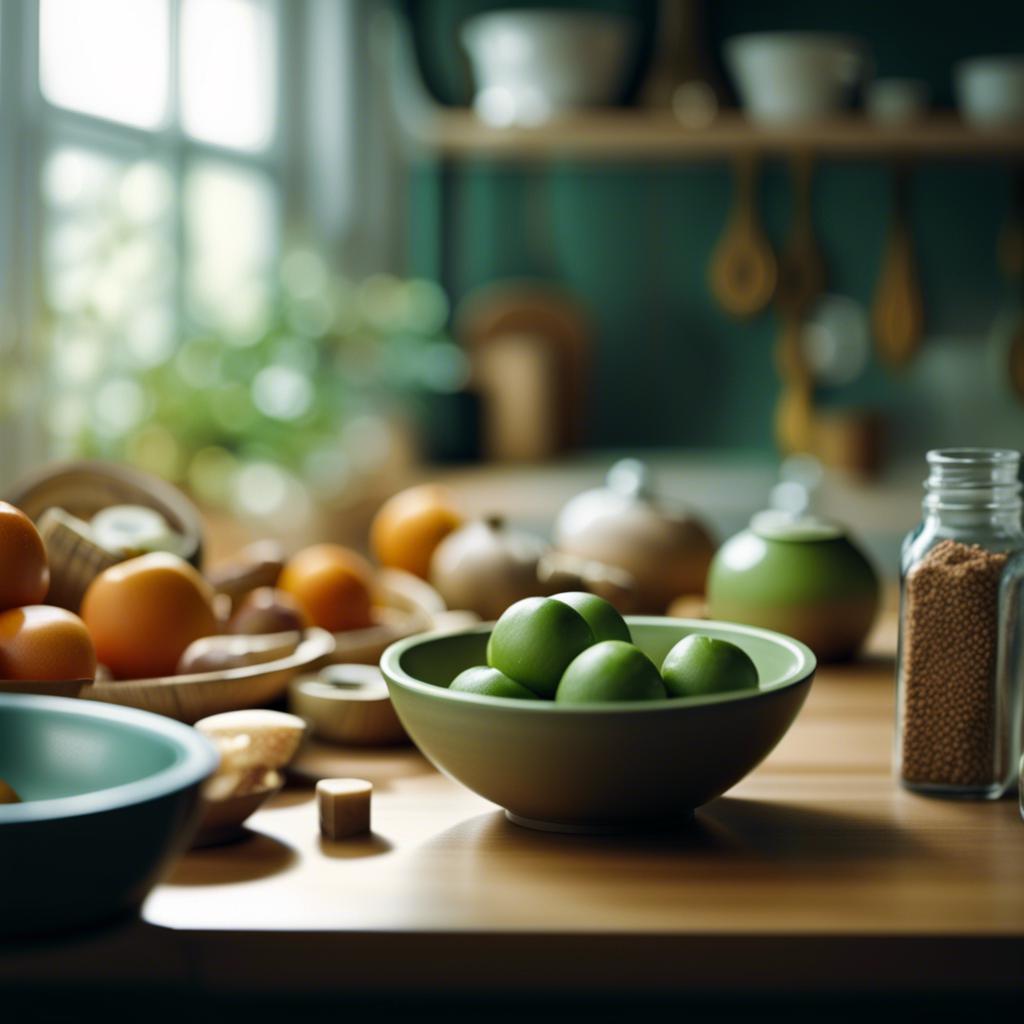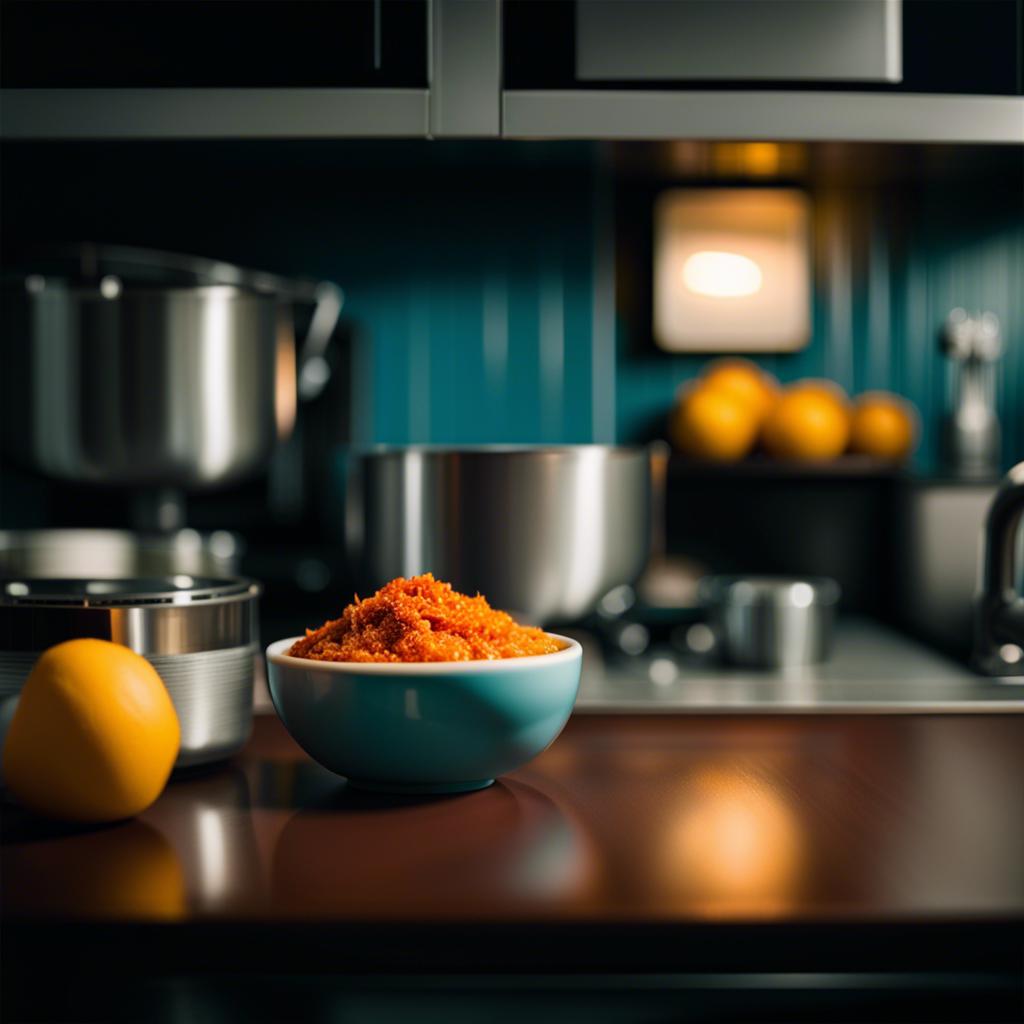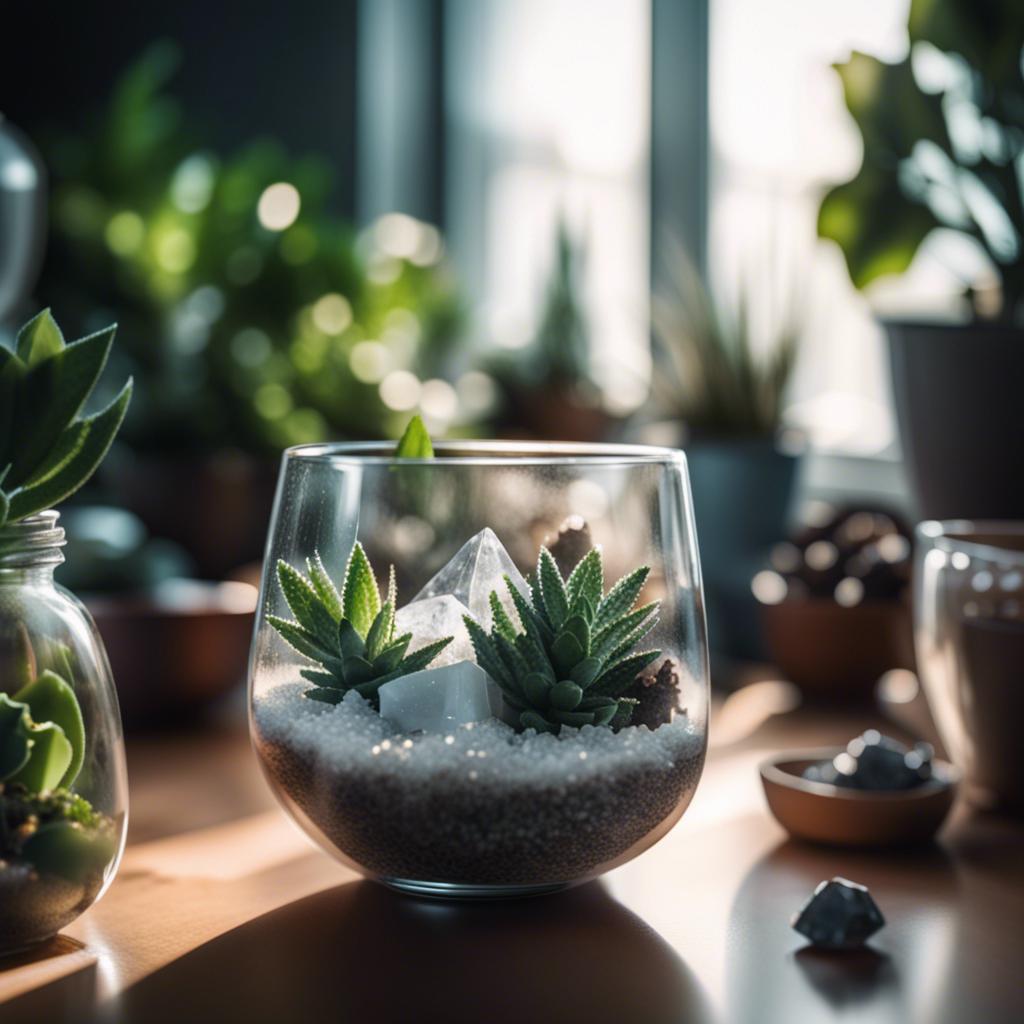
14
Apr
Feng Shui Kitchen: Design Tips and Best Practices for Balanced Energy
Step into the heart of your home and discover the ancient art of Feng Shui in your kitchen. The foundation of good energy and harmony, the Feng Shui kitchen brings balance and prosperity to your culinary space. From the placement of appliances to the colors on the walls, every detail is carefully considered to create a space that nourishes both body and soul. Join us as we explore how to bring the principles of Feng Shui into your kitchen and elevate your cooking experience to a whole new level.
Table of Contents
- The Basics of Feng Shui in the Kitchen
- Optimizing the Layout for Positive Energy
- Color and Element Considerations in the Kitchen
- Maximizing Storage and Organization
- The Importance of Cleanliness and Maintenance
- Incorporating Natural Light and Air Flow
- Enhancing the Kitchen with Plants and Crystals
- Q&A
- Closing Remarks

The Basics of Feng Shui in the Kitchen
Feng Shui, an ancient Chinese practice, focuses on creating a harmonious environment by arranging living spaces to enhance the flow of positive energy. When it comes to the kitchen, applying Feng Shui principles can help create a balanced and energetic space that promotes health, abundance, and overall well-being.
Here are some basic principles of Feng Shui in the kitchen:
- Declutter: A clutter-free kitchen allows for the smooth flow of energy. Keep countertops clear, organize cabinets, and discard any items that are broken or no longer in use.
- Balance of Elements: Incorporate the five elements of Feng Shui – wood, fire, earth, metal, and water – into the kitchen. For example, you can bring in wooden cutting boards, introduce the color red for the fire element, and add plants for the earth element.
Enhancing the Feng Shui of your kitchen can bring positive energy and vitality into your home, creating a space that nourishes not only the body but also the soul. By understanding and applying these basic principles, you can transform your kitchen into a place of nourishment, balance, and abundance.
Optimizing the Layout for Positive Energy
Feng shui kitchen design is a centuries-old practice that focuses on creating a harmonious and balanced environment within the home. The layout and organization of the kitchen can have a significant impact on the flow of energy, or chi, within the space. In order to optimize the layout for positive energy, it is important to consider the placement of key elements within the kitchen.
One of the fundamental principles of feng shui is the concept of the five elements – wood, fire, earth, metal, and water. It is believed that by incorporating these elements into the kitchen design, a natural balance can be achieved, leading to a more harmonious and peaceful space. To optimize the layout for positive energy, consider the following feng shui principles:
- Clear Clutter: Clutter can disrupt the flow of energy within the kitchen. Keep countertops clear and organized to promote a sense of calm and order.
- Balance Yin and Yang: Incorporate a balance of light and dark colors, smooth and textured surfaces, and natural and artificial light to create a harmonious yin and yang energy in the kitchen.
- Position the Stove: The stove represents the fire element in feng shui. It is recommended to place the stove in a position where the cook can see the door, but is not directly in line with it, to symbolize a sense of stability and security.
| Element | Ideal Placement |
|---|---|
| Wood | Introduce wooden elements through cabinets, furniture, or flooring to promote growth and vitality. |
| Water | Include a water feature or add the color blue to represent the water element and promote relaxation. |
| Metal | Incorporate metal accents in the form of stainless steel appliances or metallic decor to encourage clarity and focus. |
| Earth | Use earthy tones and textures in the kitchen to create a sense of stability and grounding. |
| Fire | Position the stove to symbolize the fire element and promote warmth, passion, and creativity. |

Color and Element Considerations in the Kitchen
When it comes to designing a feng shui kitchen, considering the color and element arrangements is crucial. In feng shui, each color and element is associated with different energies, and when used strategically, they can create a harmonious and balanced environment in the kitchen.
Color considerations play a significant role in feng shui kitchen design. For example, red is associated with the fire element and can bring warmth, energy, and passion to the kitchen. It is a bold choice that can be used as an accent color to bring in positive chi and stimulate appetite. On the other hand, blue and black represent the water element and can bring a sense of calm and tranquility. Using these colors can help balance the kitchen’s energy and promote a sense of relaxation while cooking and eating.
- Wood: Represented by green and brown, wood elements bring vitality, growth, and flexibility to the kitchen. Incorporating wooden furniture, cabinets, or countertops can help create a harmonious and nurturing energy in the space.
- Metal: White and metallic colors represent the metal element, which brings clarity, precision, and organization. Including metal appliances and decor can help maintain a clean and efficient energy flow in the kitchen.
- Earth: Earthy tones such as beige and terracotta represent the earth element, which brings stability, nourishment, and protection. Using these colors in the kitchen design can create a grounding and nurturing environment.
- Fire: Red, orange, and pink represent the fire element, which brings passion, creativity, and transformation. Using these colors as accents can stimulate energy and create a warm and inviting atmosphere in the kitchen.
- Water: Blue and black represent the water element, which brings calm, clarity, and purity. Incorporating these colors in the kitchen design can promote a sense of tranquility and flow.
Maximizing Storage and Organization
When it comes to creating a harmonious and organized kitchen space, embracing the principles of feng shui can make a world of difference. in your kitchen can not only enhance the flow of energy but also make your cooking and meal preparation much more efficient and enjoyable. Here are some feng shui-inspired tips to help you create a balanced and clutter-free kitchen:
- Clear the Clutter: Start by decluttering your kitchen to create a serene and inviting space. Get rid of any items that are broken, unused, or simply taking up valuable space. This will allow the energy, or chi, to flow freely throughout your kitchen.
- Organize with Intention: Take a mindful approach to organizing your kitchen by keeping frequently used items easily accessible and neatly stored. Use cabinets, drawers, and pantry shelves to keep everything in its place, creating a sense of order and tranquility.
- Enhance Natural Light: Allow as much natural light into your kitchen as possible, as it is believed to bring positive energy into the space. Keep windows unobstructed and, if needed, use light, sheer curtains to maximize the flow of light.
- Balance the Elements: In feng shui, it’s important to create a balance of the five elements – wood, fire, earth, metal, and water. Incorporate these elements into your kitchen by adding living plants, using wooden cutting boards, displaying vibrant fruits, and incorporating metal accents.
- Optimize Storage Solutions: Invest in storage solutions that not only maximize space but also add to the aesthetic appeal of your kitchen. Consider options like pull-out pantry shelves, hanging pot racks, and creative spice storage to keep your kitchen well-organized and visually pleasing.
Incorporating feng shui principles into your kitchen’s design and organization can significantly impact the overall energy and feel of the space. By creating a clutter-free, well-organized, and harmonious kitchen, you can enhance the flow of positive energy and create a space that is both functional and visually appealing.
The Importance of Cleanliness and Maintenance
When it comes to creating a feng shui kitchen, cleanliness and maintenance are of utmost importance. In feng shui, the kitchen is considered the heart of the home, representing nourishment and prosperity. Therefore, keeping this space clean and well-maintained is essential for creating a harmonious and balanced energy flow.
One of the key principles of feng shui is to create a clutter-free environment, and the kitchen is no exception. Clutter can block the flow of chi, or energy, leading to stagnation and imbalance. By maintaining cleanliness and organization in the kitchen, you can promote a positive energy flow and enhance the overall feng shui of your home.
Additionally, regular maintenance of kitchen appliances and fixtures is crucial for ensuring a smooth and efficient energy flow. Leaky faucets, malfunctioning appliances, and broken fixtures can create negative energy and disrupt the harmony of the space. By addressing these issues promptly and keeping everything in good working condition, you can promote a positive feng shui environment in your kitchen.
Incorporating Natural Light and Air Flow
One of the key elements in a feng shui kitchen is the incorporation of natural light and air flow. This is because natural light and fresh air can help create a harmonious and balanced environment, which is essential in feng shui.
Here are some tips on how you can incorporate natural light and air flow into your feng shui kitchen:
- Install large windows or skylights to allow plenty of natural light to enter the kitchen. Natural light not only brightens up the space but also helps to create a positive and uplifting energy.
- Use light and airy window treatments such as sheer curtains or blinds to allow the light to filter through while still maintaining privacy.
- Position your kitchen in a way that allows for good air flow. This can be achieved by placing windows on opposite sides of the room to create cross ventilation.
- Consider incorporating a small indoor herb garden in your kitchen. Not only will this bring in fresh scents and oxygenate the air, but it also adds a touch of nature to the space.
By paying attention to natural light and air flow in your feng shui kitchen, you can create a space that is not only aesthetically pleasing but also promotes positive energy and well-being.

Enhancing the Kitchen with Plants and Crystals
One way to enhance the energy and aesthetics of your kitchen is by incorporating plants and crystals according to feng shui principles. By bringing these natural elements into your kitchen, you can create a harmonious and balanced space that promotes positive energy flow.
Plants: Including plants in your kitchen not only adds a touch of nature but also helps to purify the air and create a sense of vitality. Choose plants that thrive in the kitchen environment, such as herbs like basil, mint, or parsley. Not only do they add a pop of greenery, but they also provide fresh flavor to your cooking.
Crystals: Crystals are believed to have healing properties and can be used to balance the energy in your kitchen. Citrine, for example, is said to bring in abundance and prosperity, while amethyst promotes clarity and spiritual growth. Place crystals in key areas of your kitchen to invite positive energy and create a calming atmosphere.
Placement: When incorporating plants and crystals into your kitchen, consider their placement according to feng shui principles. For example, placing a small potted plant on the windowsill can invite vibrant energy and natural light, while strategically positioning crystals on the countertops or near the stove can help balance the elements and promote a sense of harmony.
By enhancing your kitchen with plants and crystals, you can create a space that not only looks beautiful but also feels harmonious and revitalizing. Consider adding natural elements to your kitchen to promote a sense of balance and positive energy according to feng shui principles.
Q&A
Q: What is feng shui and how does it apply to the kitchen?
A: Feng shui is a Chinese practice of arranging the environment to create harmony and balance. In the kitchen, feng shui principles can be applied to create a space that promotes health, abundance, and nourishment.
Q: What are some feng shui tips for designing a kitchen?
A: Some feng shui tips for designing a kitchen include maximizing natural light, keeping the kitchen clutter-free, and incorporating the five elements (wood, fire, earth, metal, water) into the space.
Q: How can the layout of a feng shui kitchen affect energy flow?
A: The layout of a feng shui kitchen can affect energy flow by creating a smooth and efficient workflow for cooking, and by ensuring that the stove and sink are not directly facing each other to prevent conflicts and negative energy.
Q: What colors are considered good for a feng shui kitchen?
A: Colors that are considered good for a feng shui kitchen include earthy tones like beige, brown, and green, as well as shades of white and yellow to promote vitality and nourishment.
Q: Are there any specific feng shui remedies for a kitchen with negative energy?
A: Some feng shui remedies for a kitchen with negative energy include using mirrors to expand the space and brighten the energy, adding live plants to purify the air, and incorporating the sound of running water to promote abundance.
Closing Remarks
In conclusion, incorporating feng shui principles into your kitchen design can bring a sense of balance and harmony to this important space in your home. By creating a kitchen that flows with positive energy, you can enhance the overall atmosphere of your home and promote well-being for you and your family. Whether you choose to rearrange the layout, incorporate natural elements, or declutter the space, embracing feng shui in your kitchen can lead to a more fulfilling and nourishing culinary experience. So, go ahead and start implementing these simple feng shui practices to create a kitchen that not only looks beautiful but also feels peaceful and inviting. Let the positive energy flow and watch as it transforms your kitchen into a space that truly nurtures your body and soul.









